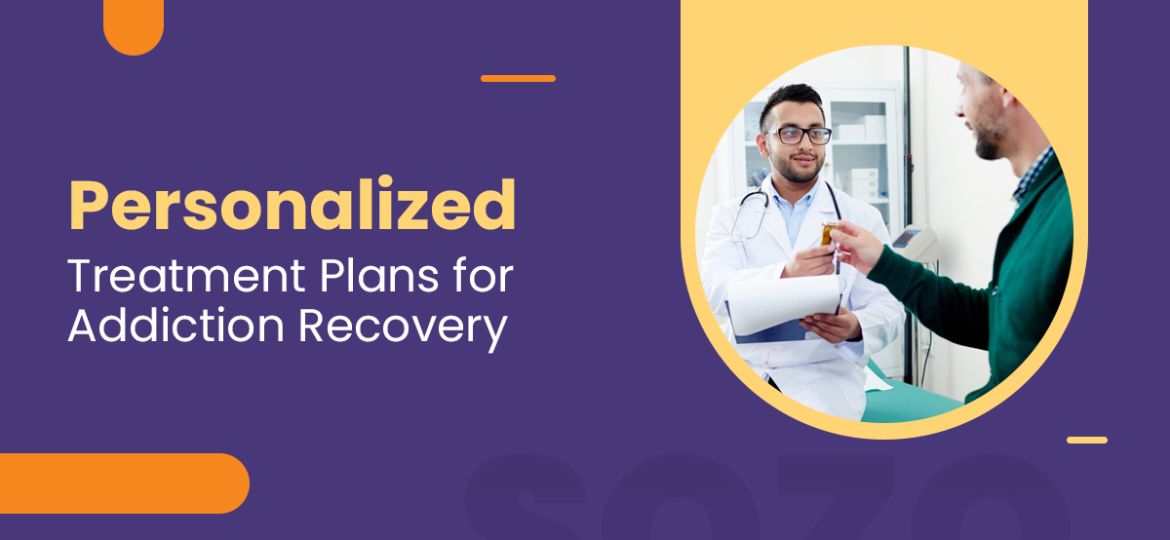
Alcohol or drug addiction is a serious issue that affects millions of people across the globe. While it takes hold in an instant, breaking free demands a comprehensive approach.
Now the question that often disturbs here is – can addiction be truly overcome?
Well, the path to addiction recovery is multifaceted. Recognizing this, reliable rehabilitation centers offer a comprehensive approach. This involves a range of addiction treatment plans that can meet the diverse needs of their clients.
In this blog, we have listed down a few significant practices that are organized for patients based on their individual requirements.
- Trauma-Informed Therapy: Unfortunately, patients struggling with addiction have experienced a lot of trauma in their lives which resulted in their addictive behaviors. This trauma-informed therapy approaches patients with sensitivity. Therapists come up with healthy coping mechanisms to overcome patients’ trauma and heal their underlying emotional wounds.
- Motivational Incentives (MI) Training: This treatment plan involves rewards for achieving sobriety-related goals. It implies patients can earn incentives such as vouchers, privileges, or rewards for conquering a milestone. For example, maintaining attendance at therapy sessions, completing assigned tasks, etc. Such incentives always boost their confidence and promote their positive behaviors.
- Life Skills Training: The journey to recovery involves learning essential skills that can transform your life. These involve communication, budgeting, time management, and problem-solving. Practicing these skills can help you navigate the challenges of daily life without paying attention to addictive behaviors.
- Sports and Adventure-Centered Activities: While prioritizing life-changing skills, rehabs also consider physical activity to be valuable in addiction recovery. It promotes physical health, builds confidence, and fosters a sense of commitment. These activities also involve outdoor adventures like hiking, rock climbing, yoga, etc., providing a promising treatment.
- Nutrition-Centered Meals: Other than activities and practices, proper nutrition is also important for overall health and well-being. So, if you believe that medicine can do everything, you are wrong. Proper nutrition, i.e., balanced meals and nutritional education can support physical healing and mental clarity. These nutrition-centered meals can stabilize mood, improve energy levels, and promote overall recovery and wellness.
- Solid Alumni Network and Program: Alumni support programs provide ongoing support and connection for individuals struggling with substance abuse. A few examples of these programs are regular meetings, social events, mentorship opportunities, online forums, etc. Here, alumni can share their experiences, achievements, and support, boosting your confidence in this journey.
- Neurofeedback: Are you aware of neurofeedback? It is a non-invasive therapeutic technique that can regulate brain operations by mitigating the chances of mental health issues. This therapy will normalize your behavior without dependence on medications or behavioral therapy.
- Acceptance and Commitment Therapy (ACT): You may face difficulty in accepting good thoughts and feelings while depending on substances. ACT is a mindfulness-based therapeutic approach that will help you develop psychological flexibility, reduce avoidance behaviors, and cultivate a sense of purpose in recovery.
- Motivational Enhancement Therapy (MET): MET aims to enhance motivation and commitment to sobriety. Therapists involved in this process use an intervention approach to identify individual’s personal goals, strengthen their motivational power, overcome barriers, and eventually help them recover. It is one of the important client-centered therapies for recovery.
- Dialectical Behavior Therapy (DBT): Addiction recovery program that prioritizes DBT to help individuals regulate their behavior and emotions. This practice combines cognitive-behavioral techniques that can develop coping skills to manage stress and improve interpersonal relationships. It is possible as DBT addresses emotional dysregulation and promotes healthy ways to overcome addiction.
Conclusion
In addiction recovery treatment, one-method-fits-all approach doesn’t work. This is because different individuals have different types of crises. A reliable and reputed rehabilitation center thus provides personalized treatment plans to address the complex needs of individuals struggling with addiction. They prioritize evidence-based practices and individualized care to help patients reclaim their lives.
Is that what you are looking for? Join SOZO’s recovery program. The therapists out there will assist you in embarking on the journey of lasting sobriety and wellness. Getting in touch with them will provide you with personalized treatment plans.

